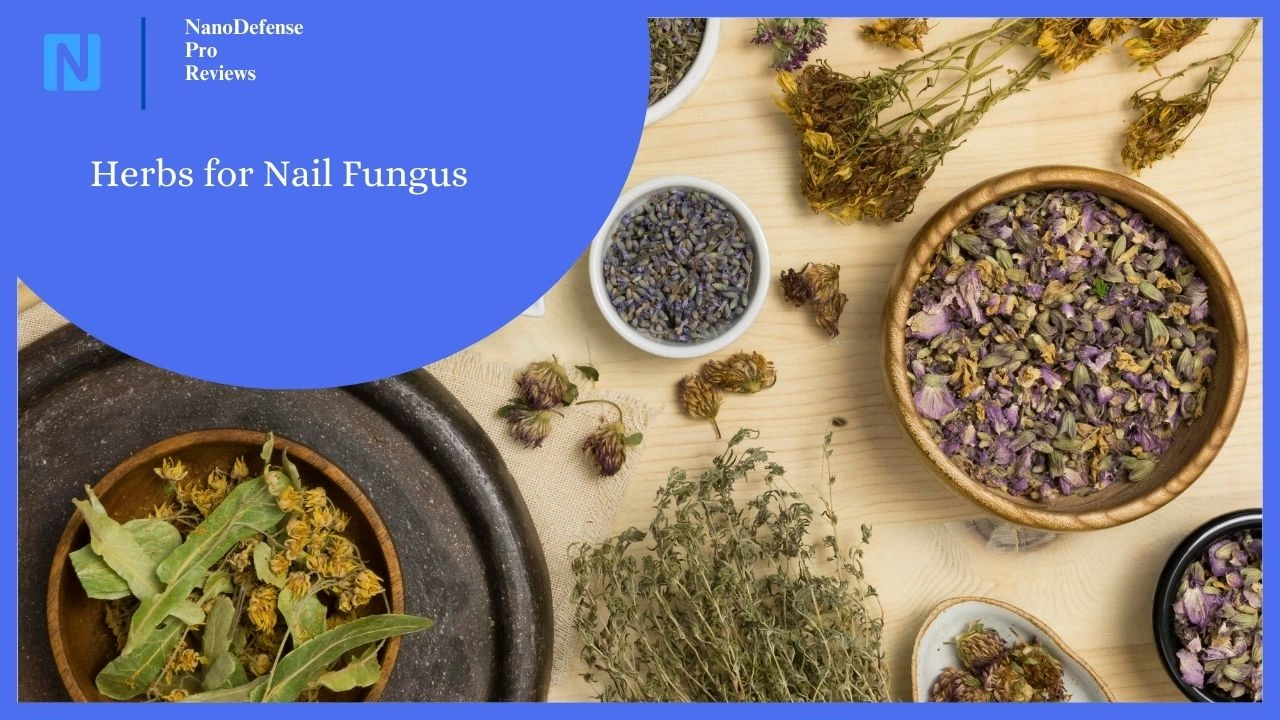Herbs for Nail Fungus: Nature’s Cure
Bid farewell to unsightly nail fungus with the power of nature’s herbs. Tea tree oil, oregano, garlic, olive leaf, and neem offer potent antifungal properties. Discover how to harness these herbal allies through topical applications, supplements, and footbaths for effective, natural nail fungus treatment.

Disclaimer: This article has been generated with the assistance of AI tools. While our research team has fact-checked the content, readers should independently verify information for accuracy and reliability.
Nail fungus, a common and unsightly condition, can be frustratingly persistent and difficult to treat. While conventional treatments like antifungal medications can be effective, many people are turning to natural alternatives, such as herbs for nail fungus, in search of a gentler and more holistic approach. In this article, we’ll explore some of the most promising herbs that may help alleviate nail fungus and restore the health and appearance of your nails.
What are Herbs?

Herbs are plants that have been used for centuries to treat various health conditions, including fungal infections. They are often rich in antioxidants, antimicrobial compounds, and other bioactive molecules that can help combat fungal growth and promote healthy nail growth.
Understanding Nail Fungus
Nail fungus, also known as onychomycosis, is a fungal infection that affects the nails. It can cause discoloration, thickening, crumbling, and even destruction of the nail. This condition is caused by various types of fungi, including dermatophytes, yeasts, and molds. Factors like poor hygiene, excessive moisture, and weakened immune systems can increase the risk of developing nail fungus.
The Power of Herbs for Nail Fungus
Herbs have been used for centuries in traditional medicine practices to treat various ailments, including fungal infections. Many herbs possess natural antifungal, anti-inflammatory, and antimicrobial properties, making them potential allies in the fight against nail fungus.
Promising Herbs for Nail Fungus Treatment
- Tea tree oil, derived from the Australian tea tree (Melaleuca alternifolia), is renowned for its potent antifungal and antiseptic properties. Studies have shown that tea tree oil can inhibit the growth of various fungi responsible for nail infections.
- Oregano oil, extracted from the oregano plant (Origanum vulgare), contains compounds like carvacrol and thymol, which have exhibited strong antifungal activities against common nail fungus strains.
- Garlic (Allium sativum) has long been used in traditional medicine for its antimicrobial and antifungal effects. The active compound allicin, found in garlic, can help combat fungal infections, including those affecting the nails.
- Olive leaf extract, derived from the leaves of the olive tree (Olea europaea), is rich in antioxidants and has demonstrated antifungal and antimicrobial properties that may be beneficial in treating nail fungus.
- Neem, an ancient Indian herb (Azadirachta indica), has been used for centuries in Ayurvedic medicine for its remarkable antifungal, antibacterial, and anti-inflammatory properties, making it a potential natural remedy for nail fungus.
How to Use Herbs for Nail Fungus
There are various ways to incorporate herbs into your nail fungus treatment routine:
- Topical Application Many herbs, such as tea tree oil, oregano oil, and garlic, can be applied topically to the affected nails. These herbs are often diluted with a carrier oil, like coconut or olive oil, and then applied directly to the nails and surrounding skin.
- Oral Supplements Some herbs, like neem and olive leaf extract, are available in capsule or tablet form for oral consumption. These supplements may help boost the body’s overall antifungal defenses and promote healing from within.
- Footbaths Adding herbs like tea tree oil or oregano oil to warm water and soaking your feet can help deliver antifungal compounds directly to the affected area.
Combination Therapy and Lifestyle Changes
While herbs can be effective allies in combating nail fungus, combining them with other treatments and making lifestyle changes may enhance their effectiveness. For example, maintaining good nail hygiene, keeping nails trimmed and dry, and wearing breathable shoes can prevent fungal growth and promote healing.
Additionally, incorporating antifungal herbs into a well-rounded treatment plan that includes conventional medications or topical antifungal solutions can provide a multi-pronged approach to tackling the infection.
Precautions and Considerations
Despite the natural origins of herbs, it’s crucial to exercise caution when using them for nail fungus treatment:
- Allergic Reactions: Some individuals may be allergic to certain herbs or their compounds. It’s advisable to conduct a patch test before applying herbs topically to check for any adverse reactions.
- Drug Interactions: If you’re taking any medications, consult with your healthcare provider before introducing herbal supplements, as some herbs may interact with certain drugs.
- Proper Identification: Ensure that you’re using the correct herbs from reputable sources, as misidentification or adulteration can lead to adverse effects.
- Patience and Persistence: Treating nail fungus with herbs may require patience and consistent use over an extended period, as nails grow slowly, and the infection may take time to resolve completely.
Related: Soothing Soaks: How Foot Baths Can Help Toenail Fungus
Conclusion
Herbs for nail fungus offer a natural and promising approach to addressing this stubborn condition. With their antifungal, anti-inflammatory, and antimicrobial properties, herbs like tea tree oil, oregano oil, garlic, olive leaf extract, and neem can help combat fungal growth and promote healthier nails. However, it’s essential to use these herbs with caution, combine them with proper nail care practices, and consult with a healthcare professional, especially if you have underlying medical conditions or are taking medications. By embracing nature’s remedies and adopting a holistic approach, you may find relief from the discomfort and unsightly appearance of nail fungus.

Lisa Miller
Dr. Lisa Miller is a board-certified Dermatologist with over 15 years of experience treating a wide range of skin, hair, and nail conditions. She received her medical degree from the prestigious Columbia University College of Physicians and Surgeons and completed her dermatology residency at the University of California, San Francisco, one of the top dermatology training programs in the country. Dr. Miller is an active member of the American Academy of Dermatology and has authored numerous peer-reviewed articles and book chapters on the latest advancements in dermatological care. She is frequently invited to speak at national and international medical conferences, sharing her expertise with other clinicians. In her private practice, Dr. Miller takes a patient-centered approach, collaborating closely with each individual to develop customized treatment plans. She is passionate about empowering her patients to achieve optimal skin, hair, and nail health through a combination of the latest medical therapies and lifestyle recommendations.
